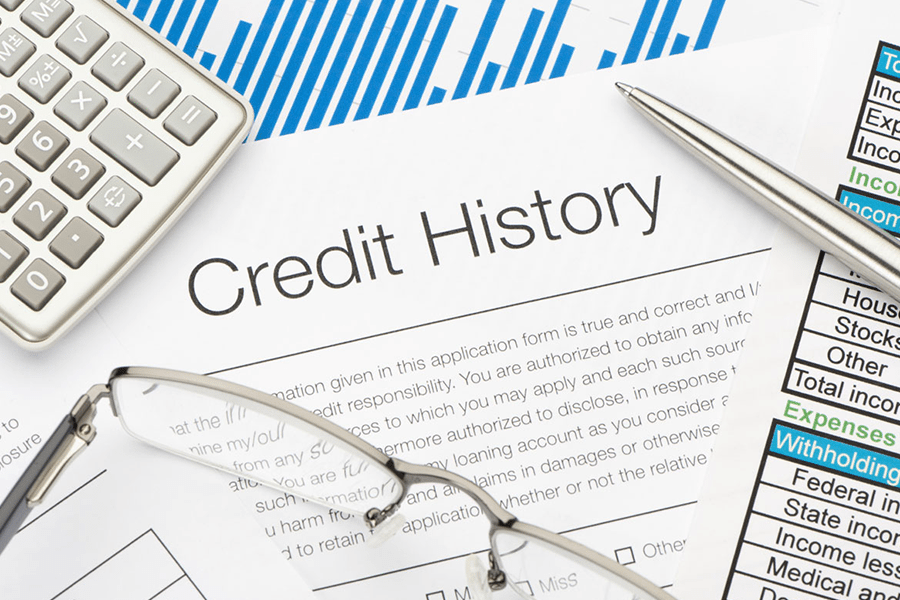Building credit is important. If you do not have a favorable credit history, it can be difficult to get a business credit card, loan, or maybe a lease. If you’re an entrepreneur, your personal credit is essential when applying for these business financing tools. We spoke with the specialists to find the most effective ways to construct private credit so that it doesn’t limit your company.
Here are 27 expert tips for building your personal credit:

1. Get Credit For Your Rent You Pay
Alexander Lowry, Professor of Finance, Gordon College
There are rent-reporting services such as Rental Kharma and RentTrack that take a bill you’re already paying and place it on your own credit report, helping to build a positive history of on-time payments. Not every credit rating carries these obligations into consideration, but some do, which could be sufficient to get a loan or credit card which firmly determines your credit rating for all lenders.

2. Gradually Take on More Credit
Howard Dvorkin, CPA & Resident Expert, Debt.com
One tactic to enhance your score is to slowly take on more credit. However, don’t apply for too many credit lines or loans within a six-month period because it can damage your credit rating. Just take on new credit gradually and slowly build credit till you attain the score you want. Just be sure that you pay on time to keep you on the ideal track. Also, be careful not to start too much credit at once, because too many credit inquiries can actually damage your score.

3. Have an Emergency Fund Accessible
Adam D. Van Wie, Creator, Van Wie Financial
The most basic way to improve a personal credit rating is not to allow yourself to get into a situation where you can’t make a payment on a bill. That’s why it’s very important to have an emergency fund. That money set aside can be the difference between making or missing a payment, which is what determines if you will have bad or good credit.

4. Setup Automatic Monthly Payments
TJ Hartman, Marketing Manager, National Processing
Concentrate on keeping your invoices payments on time since this is the part creditors care the most about. You can build a fantastic payment habit by creating your monthly bills payment automatic — you can set an automated schedule to transfer funds from the savings account right to cover your loans/credit cards. Sustaining these obligations builds good habits and showcases your overall fiscal health.

5. Borrow From Lenders That Report to Credit Bureaus
Julie Pukas, Head of U.S. Bankcard and Merchant Services, TD Bank
If it comes to choosing a lender, be selective and do your own research. You don’t wish to borrow from lenders that won’t report your activities to the credit agencies. It is ideal to decide on a lender which responsibly reports your credit activities to the credit bureaus as this will allow you to boost your credit as you continue to repay your bills.

6. Maintain Your Credit Use at 20 Percent or Reduce
Robert Franco Jr., CEO & Founder, Venture Credit Repair
Credit scores come from reduced use on your credit cards along with on-time credit history. Aside from making sure that you cover your bills on time, it is also recommended to keep your credit usage low — at 20% or below. Additionally, it is recommended that you pay your credit card balance in full every month to clean your credit use.

7. Diversify Your Own Credit
Lyn Alden, Founder, Lyn Alden Investment Strategy
Diversify your credit by having both an installation loan (like a loan or a company loan) and a revolving credit report (such as a credit card or a credit line ). This shows lenders which you can manage multiple types of debt. You shouldn’t ever accept unnecessary debts, however when financing is suitable for your business, having diversity in your own debt types helps improve your own score.

8. Be Proactive With Credit Tracking
Emily Stanley, Finance Expert, Business.org
Monitor your credit frequently. Request copies of your credit reports, review them carefully, and dispute any error. Track your credit score and inquire if there’s a significant drop. Individuals are entitled to one free report from each of the 3 major credit bureaus every year, but using a credit monitoring service is encouraged, especially if you manage both your private and business accounts.

9. Don’t Waste Your Credit Card Even if You No Longer Use it
Natasha Rachel Smith, Personal Finance Expert, TopCashback.com
Before you cancel your credit card, then reconsider. The longer your credit history, the better you’re perceived by creditors. Closing an old credit card, even when you’re no longer using it, could hurt you longer than expected. Not only will you reduce your open credit which consequently affects your credit utilization ratio, but you will also clear your maximum credit record.

10. Do not Use Gray-Area Tactics to Boost Your credit score
James R. Duren, Personal Finance Expert & Credit Card Analyst, HighYa.com
There are specialists who will tell you that you can use an assortment of methods to improve your score as high as 100 points in a matter of days. However, their tips only apply to specific situations and frequently include illegal pay-to-delete schemes between the cardholder and a collections service. Never get enticed to use gray-area tactics to get information removed from your account. That is unethical and only dishonest.

11. Charge Monthly Bills For Your Credit Card
Binyamin Shimshoon, CEO, Growpayment
One way to help build your credit is to automatically bill your regular monthly bills to your private credit card. You may incorporate your utility bills, telephone bills, internet debts, and gym memberships to your charge card. Make certain to cover these invoices promptly when they are due as delays can sabotage your credit report.

12. Be Conscious of Hard and Soft Credit Checks
Jeff Proctor, Personal Finance Expert, DollarSprout.com
Each time you apply for a new loan or credit , it counts as a question, which dings your credit score by a few factors. Be cautious when applying for new credit — be certain you only do that when you actually need it. It’s ideal to manage your finances properly and live below your means so you won’t have to apply for too much credit at once.
To learn more, read our guide about soft and hard credit checks.

13. Understand Your FICO Breakdown
Alayna Pehrson, Blog Manager, Greatest Business
When looking to develop good credit, you should first know what affects your credit. The FICO scoring is based on payment history (35 percent ), balance (30%), duration of your credit history (15%), credit diversification (10 percent ), and new credit (10 percent ). When you know what impacts your credit score, then you can choose what great credit habits you need to develop.

14. Get a Secured Loan
Cody Green, Founder and co-CEO, USADrives.com
The only way that you can prove to creditors that you are responsible and capable of paying credit is to make certain you’re actively employing a product of credit. It is possible to apply for a secured loan and also ensure to make on-time, regular payments. A secured loan is one that is secured by an asset as security, and it’s easier to obtain especially in the event that you don’t possess a high credit score.

15. Request a Credit Limit Increase
Byron Ellis, Certified Financial Planner, United Capital Financial Advisors
Increasing your credit limit may sound counterintuitive, but it can actually do wonders for your score, provided that you do not burn the excess credit. Only take an increase to your credit line if, first, you trust yourself not to spend it; and second, in case your credit issuer does not require a credit rating to do so as it might just wind up hurting your score.

16. Be Sure You Have Account Activity
Mike Beck, General Manager, EasyLLCFile
Account activity can really impact your score. If you have a credit card that never gets used, over time the available credit on that account could be discounted or not counted at all (determined by the agency and score type) — efficiently decreasing your overall available credit and
Increasing your utilization. This can negatively affect your score — so be sure you have account actions, even small ones.

17. Purchase Your Credit Card Balance in Total
WenFang Bruchett, Creator, BlissFinance.com
While it’s tempting to pay only the minimum required payment on your credit card balance, you need to understand that the credit card businesses add an interest in your credit card balance every day. This is the reason why it’s harder and nearly impossible to settle your balance once you only pay the minimum. Whenever you have a massive balance on your credit card, then it can influence your credit score.

18. Do not Use Low-Credit or No-Credit Lending Options
Parker Daniels, Personal Finance & Insurance Specialist, TheGeneralAutoQuotes.com
Many lenders, banks, and automobile dealerships tout low-credit or no-credit lending options. Do not fall for this type of trap. Aside from having to pay high interest rates because lenders assume higher risk, these types of loans will generally not help build your credit score. And as the interest rates are much greater, there will be a greater chance you will default on your payments, which will negatively affect your credit.

19. Don’t Spend Out Your Means
Steven Millstein, CFP, Credit Zeal
Generally, credit is a simple fix that most men and women turn to when things get tough. However, you can try to find alternative choices. It’s typically discouraged to utilize credit when you are uncertain how to pay it back, else you’re going to be faced with the requirement to repair your credit afterwards.

20. Stay On Top of Your Credit Report
Jeffrey Bumbales, Director of Marketing, Credibly
Credit reports outline your previous use of charge; credit scores estimate how nicely you’ll use it later on. Even though it may seem out of your control, assess your reports annually for mistakes and discrepancies and correct the issues. Ensure you keep on top of obligations, keeping your credit use ratio low and your balances available as long as possible. People often forget that opening new accounts will reduce their average account age

21. Use Store Credit Cards to Build Credit
Andrea Maurizio, Senior Advisor, Pemberton Home Consulting Group LLC
Store credit cards are a fantastic choice to build credit from scratch. They not only help customers save money at their favorite shops, but they may also help those with little if any credit prove they can handle money responsibly. Be certain not to take a balance because this type of credit card usually have high interest rates.
Read our article on Lowes vs Home Depot store cards for more information.

22. Consider Buying or Leasing a Car
Aixa Vilar, Ecommerce Expert, Emerchantbroker.com
If you do not need to have a loan or apply for a secured credit card to begin building your credit, then consider leasing a car. Making monthly payments on a car lease is one quick way to build your credit score. Just make sure the lessor of your car reports your payment activities to the credit reporting agencies.

23. Get a Secured Credit Card
Tom Tessin, Owner, HowMuchIsIt.org
If you are just beginning to build your own credit, the best thing to do is to apply for a secured credit card and use it to your regular monthly expenses. Be sure to pay off your bill promptly every month. It’s easy to get approved for a secured credit cardand while those cards do have a higher APR and annual fee, it’s a good way to begin building your own personal creditcard.
For more information, read our article on the best secured credit card.

24. Pay Your Bills on Time, Every Time
James Hendrickson, Finance Expert, SavingAdvice.com
Generally, the best thing to do to build or improve your personal credit is to pay your bills on time and repay your debts when you can. This is because credit scores are heavily impacted by your payment history as well as the balance you owe. Make sure that you don’t default in paying your bills.

25. Maintain a Poor Credit Balance
Andrea Woroch, Consumer Finance Expert, www.AndreaWoroch.com
Maintaining a minimal balance will allow you to handle timely payments and increase your credit rating. Be sure to use your credit card take a loan only once you need to. Don’t to put in your credit card every time you make a purchase. Additionally, try to keep your lifestyle within your financial capacity and make certain that you have enough savings in case of emergency.

26. Apply for a Loan With Co-Signer
1 easy method to build your credit is to open a loan account with a co-signer who has good credit. A co-signer is someone who agrees to cover the loan in case you can’t make payments. Since the co-signer will probably be responsible for the loan, MoneyUnder30 recommends that you make sure to pay for your loan responsibly. Failure to do so may not only destroy your credit, it may also mess up your relationships.

27. Apply For A Credit-Builder Loan
The sole goal of a credit-builder loan is to assist with building credit. It works as a forced savings plan. The money you borrowed is held by the lender in a single account. This may only be released to you when you pay back the sum loaned. Your payment actions are reported to the credit bureau, thereby assisting you to build your credit score.
Bottom Line — Ways to Build Credit
As credit construction is both a journey and a process, you have to be patient because it takes time. If it comes to building great credit, it is far better to start off perfect. Good habits are a way to ensure that you’re on the ideal track. Utilize these 27 expert tips for building personal credit to help guide you along the way.

